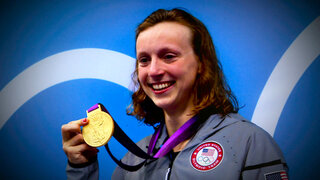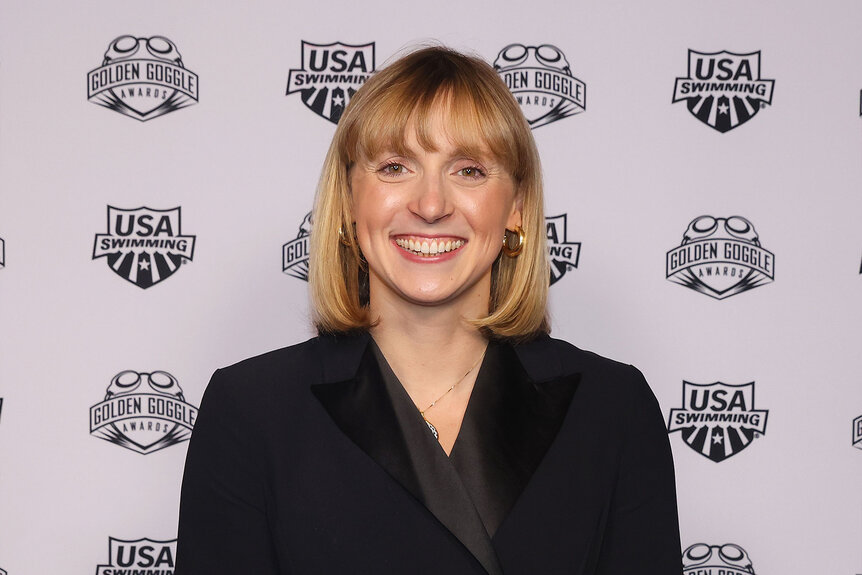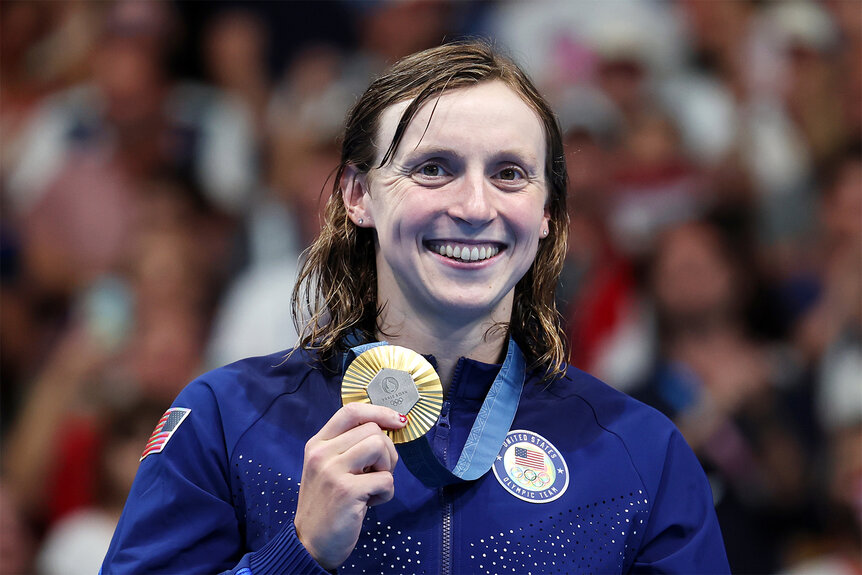How Olympics Hero Katie Ledecky Manages Her POTS Diagnosis
Ledecky was diagnosed with POTS in 2015 after feeling extreme fatigue and dizziness after her workouts.

Katie Ledecky has been making waves during her record-breaking run at the Paris 2024 Olympics, but the accomplished swimmer’s career hasn’t been all calm waters.
Ledecky—who earned the distinction as the most decorated U.S. female Olympian in history during this year’s Games— has recently revealed that under the surface of her world championship wins and Olympic records, she’s been quietly struggling with postural orthostatic tachycardia syndrome (POTS), a circulatory disorder.
Ledecky told Self in June that although she’s never hidden her diagnosis, she made the decision to talk more openly about the condition and what it’s meant for her training in her memoir to share more about her journey as a now 14-time Olympic medalist.
RELATED: Here Are All the U.S. Medal Winners at the 2024 Paris Olympics
“I thought it was important to tell my whole story, and that was a part of my story, especially leading up to the 2016 Olympics,” she said. “It was a new thing that I had to acknowledge and be aware of, something that was always in the back of my mind. I wanted to share how that’s impacted me at different points and how I’ve been able to push through that and take control of that part and live a healthy lifestyle.”
What is POTS?
POTS is a blood circulation disorder that can lead to an increased heart rate and cause light-headedness.
“Because I have POTS, I pool blood in the vessels below my heart when I stand. My body then releases extra norepinephrine or epinephrine, which adds additional stressors on my heart, making it beat faster. Which, in turn, bring on dizziness, fainting and exhaustion,” she explained in her 2024 memoir Just Add Water: My Swimming Life.
Ledecky first began to notice something wasn’t right with her health while at the World Aquatics Championships in Kazan, Russia in 2015. After a team dinner, Ledecky wrote that she started to feel “extremely hot and lightheaded,” according to E! News.
Ledecky initially wrote the incident off as a weird fluke, until she found herself feeling fatigued after workouts.
“I would have a couple of good practices, and then I would have a day or two when I had absolutely no energy,” she wrote. “Some days I couldn’t walk around without dizziness. I remember wrapping practice and struggling to get back to the locker room.”
Her coach at the time, Bruce Gemmell, recommended she see a specialist at Johns Hopkins, where she was ultimately diagnosed with POTS.
How has Katie Ledecky dealt with POTS?
After learning about the disorder, she altered her diet by increasing her sodium intake and adding more hydration.
Fortunately, one of the other ways to manage the disorder is through reclined aerobic exercise like swimming, a happy coincidence Ledecky described as “kind of funny.”
“What are the odds that the prescriptive exercise for my particular disease would be…more swimming?” she wrote.
Amanda Kaufman, a physical therapist and supervisor of rehabilitation services at Northwell Health STARS Rehabilitation in Glendale, New York told MedPage Today that swimming can be helpful for POTS because it’s not “dramatic change” for the body like some standing exercises.
“Getting in the pool helps to alleviate some of that stress on the body, because the water helps you be more buoyant, which creates less stress on the joints,” she explained.
Today, Ledecky told Self she’s gotten the disorder “under control completely.”
RELATED: What's in the Box that Olympic Winners Get along with their Medals?
“I really just had to add salt to my diet and wear compression gear,” she said. “Whenever I get sick and when I go to hot environments, I need to be especially careful to stay on top of my salt and hydration.”
She also offered some advice for others struggling with POTS.
“The biggest thing is to trust the health professionals you’re working with,” she said. “I did that and was able to figure out what helped me pretty quickly. I understand that for some people, it’s a longer process. But it’s important to stay patient and work with the people around you and make sure you have good people watching out for you, encouraging you. For instance, my mom is always reminding me to stay on my salt and hydration.”
The diagnosis doesn’t appear to have slowed Ledecky down. After winning the 800-meter freestyle final on August 3, Ledecky became the first woman in history to win the same event at four consecutive Olympic Games, starting with her Olympic debut in 2012 at the age of 15.
It was her 14th Olympic medal, which earned her the distinction as the most decorated U.S. female in Olympic history.
She may have secured her place in the history books, but Ledecky hasn’t ruled out the possibility of a return to the Games in Los Angeles in 2028.
“I’ll take it year by year and give it everything I’ve got for as long as I have left in me,” Ledecky said after the win, according to The New York Times.

















